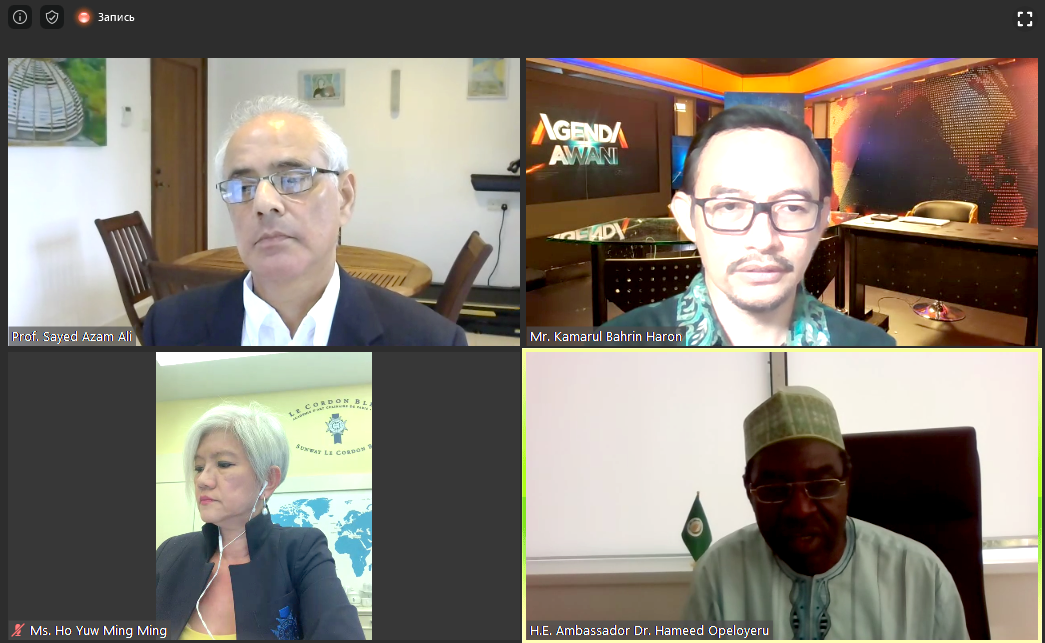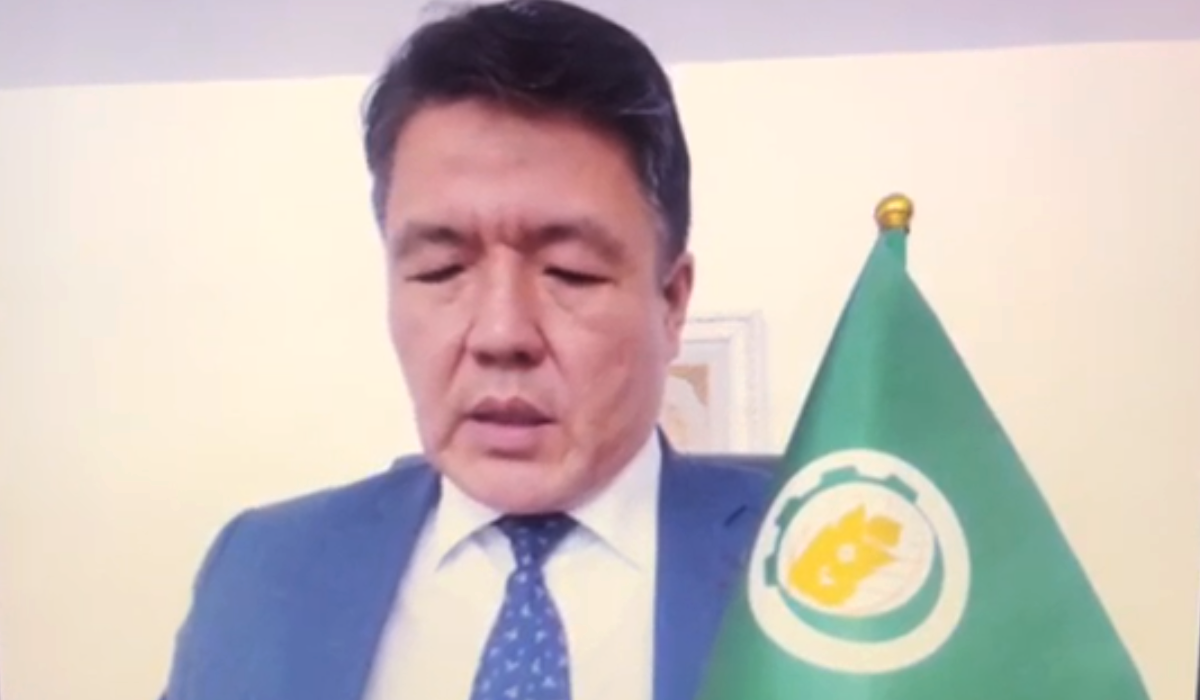The Director-General of IOFS spoke out about, primarily, the need for all Muslims of the world to unite, strengthen and revive the global Islamic community. The Islamic trade, says Director-General, struggled even before the onset of the pandemic, and the virus strained the existing issues even more. The IOFS developed a Framework of Action on Facilitation of Food Trade aiming to unify the OIC trade market. The action plan could be summarized in seven principles below:
1) Implementation of OIC Trade-Related Instruments
2) Food Trade Events
3) Islamic Trade Financing, Investment and Export Credits
4) Regulation of Halal Standards, Accreditation and Certification Procedures
5) Food Processing and Post-Harvest Losses
6) Value-Chain Approach to Development of Food and Strategic Agricultural Commodities
7) Transport Corridor Development and Telecommunication
The Director-General also mentioned the Memorandum that IOFS elaborated to tackle the looming food crisis in the OIC region. The Memorandum details international and national OIC responses to ensure that collective and coordinated action is taken to relieve the situation.
The Deputy Director-General, Hameed Opeloyeru, and other experts, Prof. Sayed Azam Ali, Ms. Ho Yuw Ming Ming and Mr. Thione Niang debated on global food crisis amidst COVID-19. The speakers exchanged their views on the topic and the initiatives their organisations have taken to handle the crisis. They noted how virus challenged modern unsustainable patterns of consumption and agreed that there is a necessity to not only overcome current problems but also rethink our long-term global policies.








